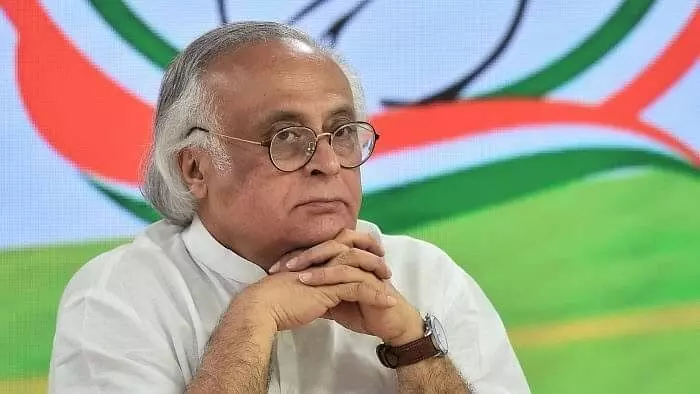Want GST 2.0 to be Good and Simple Tax not Growth Suppressing Tax: Cong

New Delhi: The Congress Saturday demanded an official discussion paper on GST 2.0 soon for a wider debate on it and said the reform should be towards a "Good and Simple Tax" in letter, spirit, and compliance, and not the "Growth Suppressing Tax" it has become. The opposition party's assertion came a day after Prime Minister Narendra Modi announced that GST rates will be lowered by Diwali, bringing down prices of everyday use items, as his government looks to reform the eight-year-old regime that has been plagued by litigation and evasion. Congress general secretary in-charge of communications, Jairam Ramesh, said that for well over a year and a half at least, the party has been calling for a radically transformed GST 2.0.
Noting that a transformed GST 2.0 was a key pledge in the Congress manifesto for the 2024 Lok Sabha elections, Ramesh on Friday said the prime minister seems to have finally woken up to the fact that economic growth will simply not accelerate unless this transformation takes place and increases private consumption and private investment. "Over the last seven years, the spirit of GST has been vitiated by an increased number of rates and the granting of multiple exemptions. The structure also seems to have facilitated evasion. There must be a drastic reduction in the number of rates," he said in a statement. The Congress leader said simplification of the rate structure is essential, but must be done in a manner that minimises revenue uncertainty to states and also eliminates the classification disputes that have become so common. "The GST compensation cess expires on March 31, 2026. This must be extended to offset any revenue uncertainty from the rationalisation of the rate structure." Ramesh said the widespread concerns of MSMEs -- the major employment generators in the economy -- must be addressed meaningfully, he said, adding that apart from major procedural changes in GST, this will involve further increasing the thresholds that must apply to interstate supplies as well.
Sectoral issues that have surfaced, for instance, in textiles, tourism, exporters, handicrafts and agricultural inputs, must be tackled, he said. In addition, states should be incentivised to move towards the introduction of state-level GST to cover electricity, alcohol, petroleum, and real estate as well, the Congress leader opined. "The Indian National Congress demands an official discussion paper on GST 2.0 very soon so that there can be an informed and wider debate on this vital and pressing national issue. "GST 2.0 should be truly a Good and Simple Tax (GST) in letter, spirit, and compliance, not like the Growth Suppressing Tax (GST) it has become," Ramesh said. Soon after the prime minister's announcement from the ramparts of the Red Fort on the 79th Independence Day, the Union Finance Ministry said it has proposed that most goods and services be taxed in two slabs -- standard and merit -- and a select few items be charged special rates. This is to replace the current goods and services tax (GST) structure, where sale of goods and rendering of services are taxed in four different brackets -- 5 per cent, 12 per cent, 18 per cent and 28 per cent -- with luxury and sin goods attracting a levy on top of the highest rate of 28 per cent. "This Diwali, I am going to make it a double Diwali for you," Modi had said in his address to the nation.
Stating that over the past eight years, his government has undertaken major GST reforms, the prime minister said, "We have discussed with states and we are bringing next-generation GST reforms that will reduce the tax burden across the country." "Tax on items for the common man will be reduced substantially. Our MSMEs will benefit hugely. Daily use items will become cheaper, which will also strengthen our economy," he had said. GST, which subsumed a host of taxes and local levies, was rolled out on July 1, 2017.



